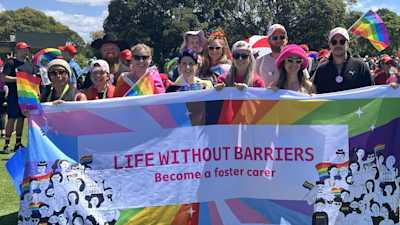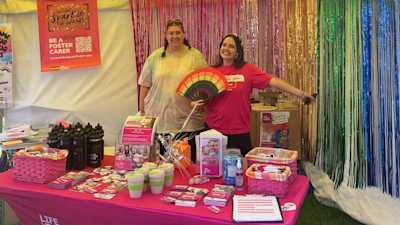Reflecting on 30 years of collaboration, connection and progress with the people and communities we support.
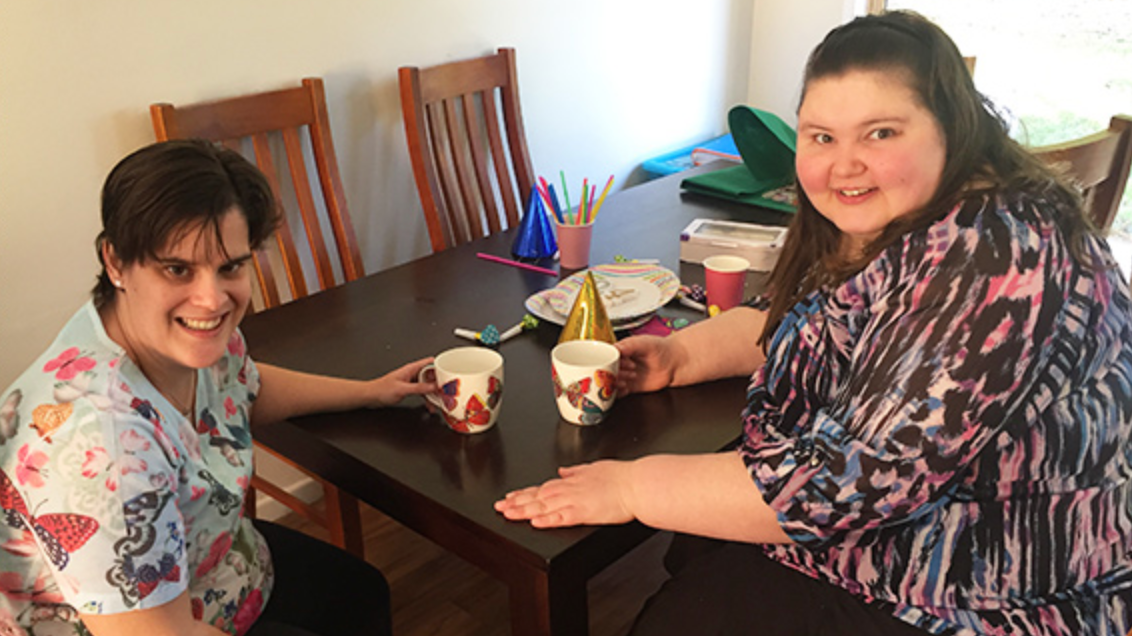
Image: Hannah and Chantelle, two participants supported by Life Without Barriers, enjoying a tea at their house.
This year, we celebrate three decades of milestones, memories and community spirit. Throughout September and October, we are sharing 30 stories for 30 years.
2015 - 2016: Sophie’s journey with Ngatti House
When Sophie* arrived at Ngatti House, she could not imagine how different her life would look just two years later. She had spent years feeling shut out from school, family, friendships and any real sense of belonging.
"Time was no concept for me, each day was the same. Hospital was a revolving door, a temporary escape and a band aid at most," Sophie recalls.
"I’d wake up and go to school where I would put my head down on the desk and wouldn��’t look up again until the siren signalled it was time to go home. I’d then go straight home and lock myself away in my room and wouldn’t come out until it was time for school again."
At that point, Sophie had no accommodation, no support networks and no income.
"I had nothing and no one but myself," she said. After a long hospital admission, she was referred to Ngatti House.
"At the time, I had no idea of the life-changing opportunity I had been given."
Moving into Ngatti House gave Sophie stability and support.
"At about 6–9 months in, changes rapidly began to occur. I no longer felt the need to self-harm, suicide became less and less of an answer, admissions to hospital were virtually non-existent, and I started to achieve things I never thought possible," Sophie said.
"I felt safe, supported and cared for, all feelings which were previously foreign to me."
The support team at Ngatti House stood beside Sophie in practical and personal ways. Helping her to attend university classes, funding driving lessons, signing her up to a gym, supporting her diet and lifestyle choices, and making sure she could achieve her goals.
Two years later, Sophie had moved into her own unit, commenced a double degree, was working, volunteering, had saved for a car, and rebuilt family relationships.
"My outlook on life has taken a complete 360, and I can’t wait to experience what the future holds," she said.
"They listened to me when others wouldn’t, they were there for me when others weren’t, they believed in me when I couldn’t believe in myself, and they persevered with me where others simply gave up."
"What I’m about to embark on is the next chapter of my life, one which I get to write myself and one which I can’t wait to experience."

Image: A young woman with long brown hair, wearing a denim jacket and sunglasses, smiles at the camera.
2016 - 2017: Finding joy in respite care
Since 2015, Anna* has been providing respite care with Life Without Barriers, giving foster families time to recharge while ensuring young people continue to feel supported.
Having worked in the not-for-profit sector, Anna was familiar with the process and, as she explained, welcomed it. She wanted to contribute to her community in a meaningful way and found respite care the perfect fit.
For Anna, providing respite care is about lasting connections that matter well beyond a weekend.
Anna currently supports two girls and has become part of their extended family, often joining them at Christmas and plans for weekends full of activities. Guided by the children, the weekends are full of fun activities like a trip to Luna Park or the Powerhouse Museum, road trips, watching movies or baking cakes at home. Anna mixes fun with consistency, guidance and empowerment.
"I love stepping out from my busy work, family and social life to focus my energies on a really rewarding couple of days with funny, smart and awesome young women," Anna shared.
"This experience has taught me a lot about compassion and understanding, and the importance of role modelling positive behaviours."
Encouraging others to consider fostering, Anna is clear.
"Anyone can be a foster carer, whether fulltime or as respite, as a single male or female carer, or as busy professionals."
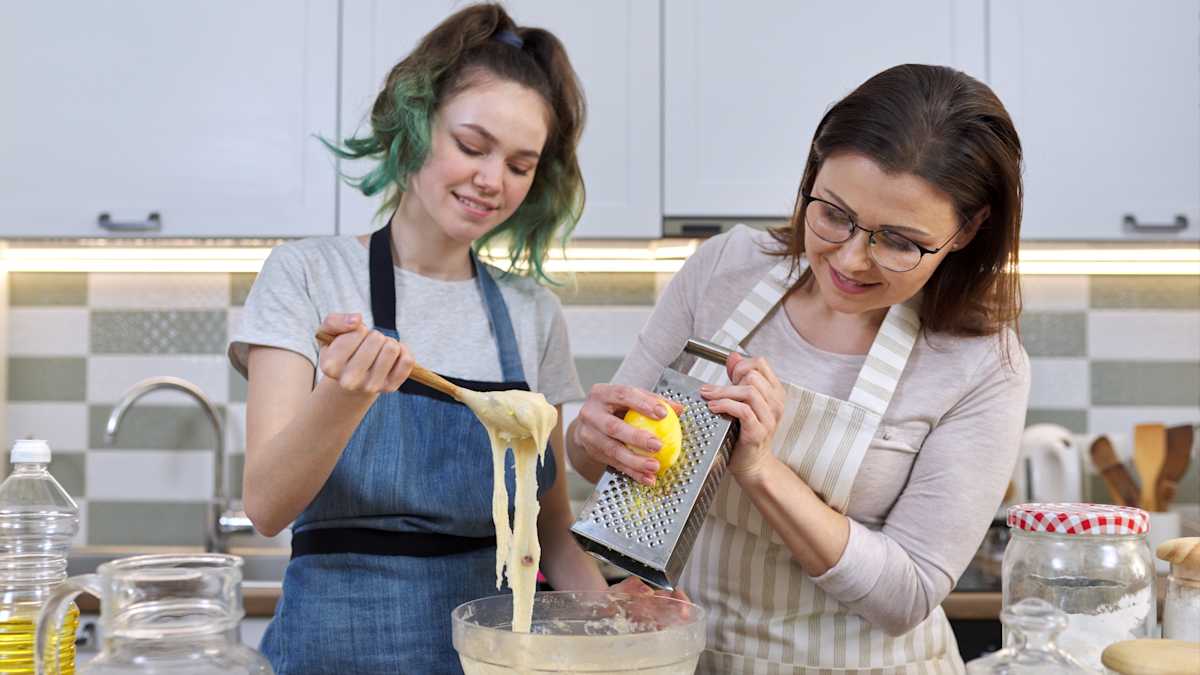
Image: A woman and a teenage girl stand behind a kitchen bench, baking together.
2017 - 2018: New chapters
In 2017 and 2018, we saw remarkable stories of young people stepping into new chapters of independence and friendship.
Nick and Alex met at The Broadmeadow Hub in Newcastle and quickly formed a strong bond that grew into a shared dream of living independently. With the guidance of their families, mentors and their Support Worker Jess, they made the move from their parents’ homes into a place of their own. Together they built routines for cooking, cleaning and shared activities, while also making space for their own time.
"We get along really well and we have bonded," Nick said.
"He encourages me. He is an inspiration," Alex added.
Their friendship has been the foundation for their journey toward greater independence.
Read more about Nick and Alex here.

Image: Nick and Alex outside their home with their mentor Jess.
At the same time, Hannah and Chantelle moved from group accommodation into their own home, marking the start of a long-awaited new chapter.
"Our first night was very exciting and strange being away from our familiar areas, but we were here and starting our new chapter in our lives," Hannah shared.
"We have lots of fun times together and laugh and joke a lot of the time," added Chantelle.
These moments were made possible through the introduction of the NDIS and the collaborative efforts of families, staff and community. They remind us of the power of connection, friendship and the opportunity to live life on one’s own terms.
Read Hannah and Chantelle's story here.
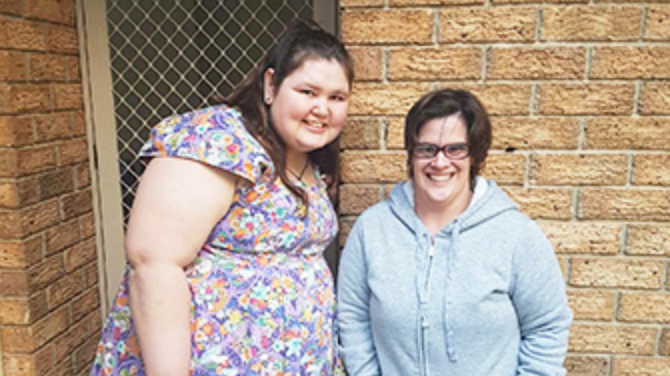
Image: Hannah and Chantelle stand in front of their house, smiling at the camera.
2018 - 2019: Building strong foundations: The impact of Multisystemic Therapy
During 2018 and 2019, Multisystemic Therapy (MST) continued to make a significant difference for young people and their families across Australia and New Zealand. MST is an evidence-based, intensive family and community-based program that supported young people to strengthen relationships, re-engage with education and community life, and build on their existing strengths.
One young person, Braydon*, entered the MST program at a time when life was particularly challenging for him and his family. His MST clinician worked closely with him while also supporting his parents to strengthen communication, manage stress and develop strategies that worked for everyone at home.
"I found it hard to believe that the clinician’s ideas would work, but boy was I wrong. Our clinician had an answer for every issue we faced, not only for our child but for me as well," said Braydon’s mum.
After three months in the program, Braydon had returned to school, was living at home, participating in team sport and building positive peer relationships.
"Our clinician turned our whole life around," his mother said.
Braydon’s story reflected the experiences of many families engaged with MST across the region.

Image: A teenage boy wearing a red and white t-shirt smiles at the camera.
In New Zealand, Life Without Barriers partnered with eight MST teams, providing clinical guidance, quality assurance and ongoing support to ensure families received the highest quality of service. The partnership included weekly clinical input, quarterly training, and developmental activities such as recruitment and new program implementation. Monthly reviews with MST participants and caregivers helped maintain program quality and encouraged continuous improvement through feedback.
Families consistently shared the positive impact of the program. One MST participant said, "I wish this was available for all families. It’s a wonderful service."
"Both therapists are fantastic. They’re easy to understand and have helped me to change what I do with my child," shared another.
Between 1 January and 31 December 2018, MST teams in New Zealand supported 206 young people and their families. Upon completion, 96 per cent of young people were living at home, 78 per cent were engaged in school or employment, and 86 per cent had no new arrests. These results reflected the dedication of our partner agencies and the resilience and commitment of the families themselves.
Through MST, Life Without Barriers and our partners worked together to build strong foundations for lasting change, supporting young people and their families to thrive within their homes, schools and communities.

Image: The MST New Zealand Team sitting together around a table at a restaurant.
2019 - 2020: A standout season for Tyson
Looking back on 2019, it was a standout year for Tyson. After a 2018 season with fewer games than he had hoped for, Tyson was ready for a new challenge and the opportunity to join the Fremantle Integrated Football Team came at just the right time.
Through our partnership with the Perth Football League, Integrated Football provided opportunities for players of all abilities to take part in a vibrant and inclusive competition. The program helped players stay active, build confidence, and enjoy being part of a close-knit club community.
Tyson made the most of the season, he trained hard, took the field with pride, and built strong friendships along the way.
"I enjoyed playing for the club as I made friends in our team and we all supported each other in good and bad turns in the games. I liked playing and enjoying myself," said Tyson.
"My Life Without Barriers' carers stayed with me at all games and trainings. They ensured that I was always on time for trainings and games, they encouraged me and cheered for me."
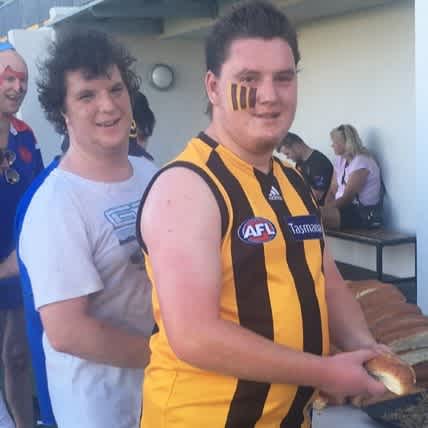
Image: Tyson wearing a yellow and brown football uniform, smiling at the camera.
30 Years: Then, Now, Next series
Read 'Then, our Beginnings 1995 - 2009 | 30 Years with Life Without Barriers' here.
Read 'The journey continues 2009 - 2015 | 30 Years with Life Without Barriers' here.
Read '30 Years: Then, Now, Next with Life Without Barriers' here.
A person's story is precious. We take storytelling seriously. Sometimes people are able to tell their own story, and we love that. We always make sure they give us their ok, and we will always honour the trust placed in us to bring their story forward.
*Names have been changed to protect the individuals in this story.
